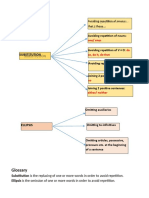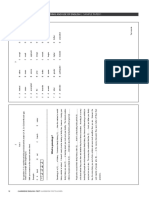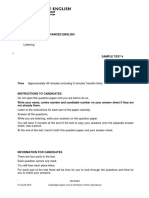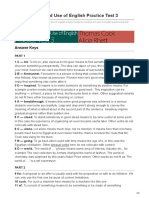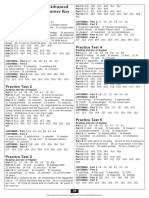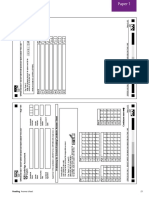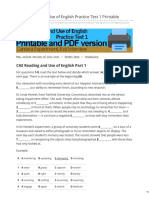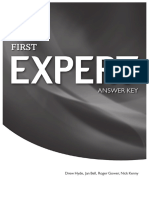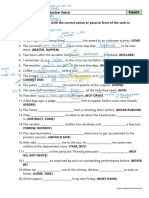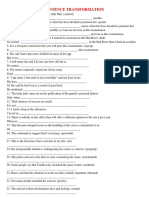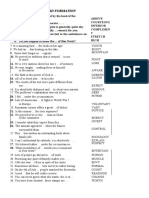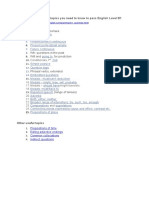0% found this document useful (0 votes)
328 views2 pagesC1 Grammar Guide
The document outlines essential grammar topics for the C1 Cambridge Exam, including verb tenses, modal verbs, conditionals, and passive voice. It also covers reported speech, relative clauses, gerunds and infinitives, articles and determiners, inversion and emphasis, linking devices, phrasal verbs, idioms, noun phrases, nominalisation, and collocations. Each section emphasizes the usage and rules necessary for advanced English proficiency.
Uploaded by
soukaina hajjiCopyright
© © All Rights Reserved
We take content rights seriously. If you suspect this is your content, claim it here.
Available Formats
Download as PDF, TXT or read online on Scribd
0% found this document useful (0 votes)
328 views2 pagesC1 Grammar Guide
The document outlines essential grammar topics for the C1 Cambridge Exam, including verb tenses, modal verbs, conditionals, and passive voice. It also covers reported speech, relative clauses, gerunds and infinitives, articles and determiners, inversion and emphasis, linking devices, phrasal verbs, idioms, noun phrases, nominalisation, and collocations. Each section emphasizes the usage and rules necessary for advanced English proficiency.
Uploaded by
soukaina hajjiCopyright
© © All Rights Reserved
We take content rights seriously. If you suspect this is your content, claim it here.
Available Formats
Download as PDF, TXT or read online on Scribd
/ 2
